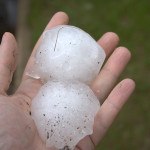In the wake of Hurricane Katrina and in preparation for future disasters, the Independent Insurance Agents & Brokers of America (IIABA) is offering consumers tips on how to protect themselves against fraudulent contractors.
After natural disasters and large scale tragedies, some individuals try to take advantage of those most in need by posing as insurance claims inspectors, contractors, and insurance company representatives.
“It is despicable that a few unscrupulous individuals may try to take advantage of victims in the aftermath of a disaster, but there are things you can do to protect yourself and your family,” said IIABA CEO Robert Rusbuldt. “Confusion about how your insurance policy works helps these con artists walk away with your money. That is why it is important to call your insurance agent and find out what steps to take after a loss.”
The Big “I” advises consumers to review their policies frequently, and be prepared, so that in the event of a natural disaster, terrorist attack, or any event that damages their property, they will know exactly what to do. There are five important steps consumers can take to keep con artists from taking advantage of their situations.
In the event your property sustains damage:
* If a contractor approaches you and purports to be from your insurance carrier and you haven’t reported a loss, be sure to verify their identity. Make sure the contractor is affiliated with your insurance company. Ask to see a contractor’s required state or local licenses, and write down the license numbers. Also, ask for proof that any contractors you choose have liability and workers compensation insurance by asking for a certificate of insurance.
* Make sure your policy covers the type of repairs that are needed. If possible, have your insurance company send a representative to assess the damage and provide probable cost to repair. This will give you a reliable basis for negotiating repairs with contractors.
* If your policy requires that you get multiple estimates to repair your damage, always try to obtain two or three detailed written repair bids. They should include all costs, what work will be done, schedule for completing work, and guarantees. Never pay for repair bids. Dishonest contractors may take your money and vanish. Most reputable contractors won’t charge you simply for bidding on your repair work.
* Never accept offers to increase the amount of your damage with the reasoning that it will be paid by the insurance company. This is a sure sign of a scam, and you could be guilty of committing fraud by doing so.
* When paying for your damage, try to have the insurance carrier pay the contractor directly, but under no circumstance should you pay for your work in advance or before all the work is finished. The contractor could disappear with your money, leaving your repair job unfinished. Deposits should be about 20 percent (or less) up front. If you do pay for the repairs yourself, never pay in cash; pay only with check or credit card. A contractor who demands cash may be trying to avoid paying taxes or buying legally required insurance. And if the contractors ask for more money due to unforeseen damage or increased costs, be cautious before allowing work to continue. Make sure your insurance carrier is aware of the cost increases and agrees to payment before proceeding.
Was this article valuable?
Here are more articles you may enjoy.

 CoreLogic Report Probes Evolving Severe Convective Storm Risk Landscape
CoreLogic Report Probes Evolving Severe Convective Storm Risk Landscape  Texas Among Several States Facing New Fire Risks: Weather Watch
Texas Among Several States Facing New Fire Risks: Weather Watch  Synopsys Sued by Private Equity Firm for Shopping $3 Billion Unit
Synopsys Sued by Private Equity Firm for Shopping $3 Billion Unit  Dog-Related Injury Claim Payouts Hit $1.12B in 2023, Report Shows
Dog-Related Injury Claim Payouts Hit $1.12B in 2023, Report Shows 